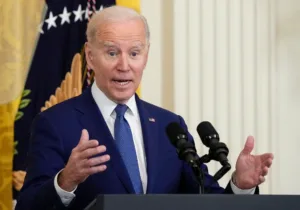The Palestinian Authority has rejected desperately needed COVID-19 vaccines from Israel, and Palestinians deserve better from their leaders.
Last month the Israeli government announced it would deliver 1.4 million COVID-19 vaccines to the Palestinian Authority after months of secret negotiations under former Prime Minister Benjamin Netanyahu.
Unfortunately, the high was short-lived as the PA went back on the agreement when they announced they would return 100,000 doses of the vaccine. A public disagreement ensued, and the PA accused Israeli leadership of delivering doses that were too close to the expiration date.
PA spokesman Ibrahim Melhem claims the expiration dates of the doses did not meet the terms of the agreement, so the doses could not be administered to Palestinians on time.
An anonymous Israeli official confirmed the delivered vaccines would expire in July, meaning there would have been more than two weeks for the PA to administer them. The official also added that the PA was aware of the vaccines’ expiration dates before signing the agreement.
Now Palestinians will have to wait months before they can receive another vaccine shipment from the global sharing initiative.
This bout is not the first or last time that Palestinian leadership has failed its people.
Since its establishment in 1994, the Palestinian Authority has never turned inward to consult the Palestinian people. Rather, it has blindly navigated international frameworks and negotiations that have led to the illusion of statehood and fostered poor welfare. While initially established as an interim government, the PA has held onto power for over 25 years, and it thwarts any progress toward a two-state solution or functioning economy.
The new generation of Palestinians needs to reclaim leadership. Only they can deliver accountable governance and legitimate peace plans.
First and foremost, the next generation of Palestinian leadership needs to foster meaningful consensus-building. The current Palestinian Authority and Palestine Liberation Organization structures are deeply flawed. They have become self-serving elites who are disconnected from the people they represent.
A poll conducted by the Palestinian Center for Policy and Survey Research in 2012 revealed that 71 percent of Palestinians believe there is corruption within the Palestinian Authority institutions in the West Bank. The good-faith approach of consensus-building can guarantee that leaders address general frustrations. Because the PA is not a formal government, it needs to work closely with Palestinians, at home and abroad, to achieve trust and accountability.
Second, Palestinian youth need to address and accept the reality of the Middle East.
Given the recent Abraham Accords, many Palestinians feel more isolated and hopeless than ever. PA leaders have publicly rejected any normalization deals, calling them “acts of betrayal.” But this strategy has proven to be more harmful than helpful to Palestinians.
Instead, youth leaders need to reassess the current geopolitical reality and create a strategy that considers their Arab neighbors. Bahrain, Qatar, the United Arab Emirates, and Sudan have already ditched their old strategy of isolating Israel for a much more pragmatic approach by agreeing to “consolidate and expand such friendly relations based on shared interests and a shared commitment to a better future.” It is time for the Palestinian people to do the same.
Lastly, Palestinians need to unite under one solution.
Palestinians hold a rather diverse range of opinions on the peace process with Israel. Some believe that a two-state solution is the answer, while others argue that a one-state solution is the only outcome within reach after decades of perennial conflict. Others have advocated for more radical ideas, such as a three-state confederation. This lack of unity has been a major obstacle in the peace process and needs to be remedied. This will be a difficult and tenuous process, but unity is valuable in this peace process.
Palestinians cannot continue to travel down their current path of destruction. Up to this point, the Palestinian leaders’ strategies have not only failed, but ultimately hurt both Palestinians and Israelis. The region is changing fast—in order to survive, Palestinian leadership must also change.
Now is the time for Palestinian youth to step up as leaders. Only then can the Palestinian people have the opportunity to create a national narrative that accounts for the region’s realities today and reclaim their own space and identity.






